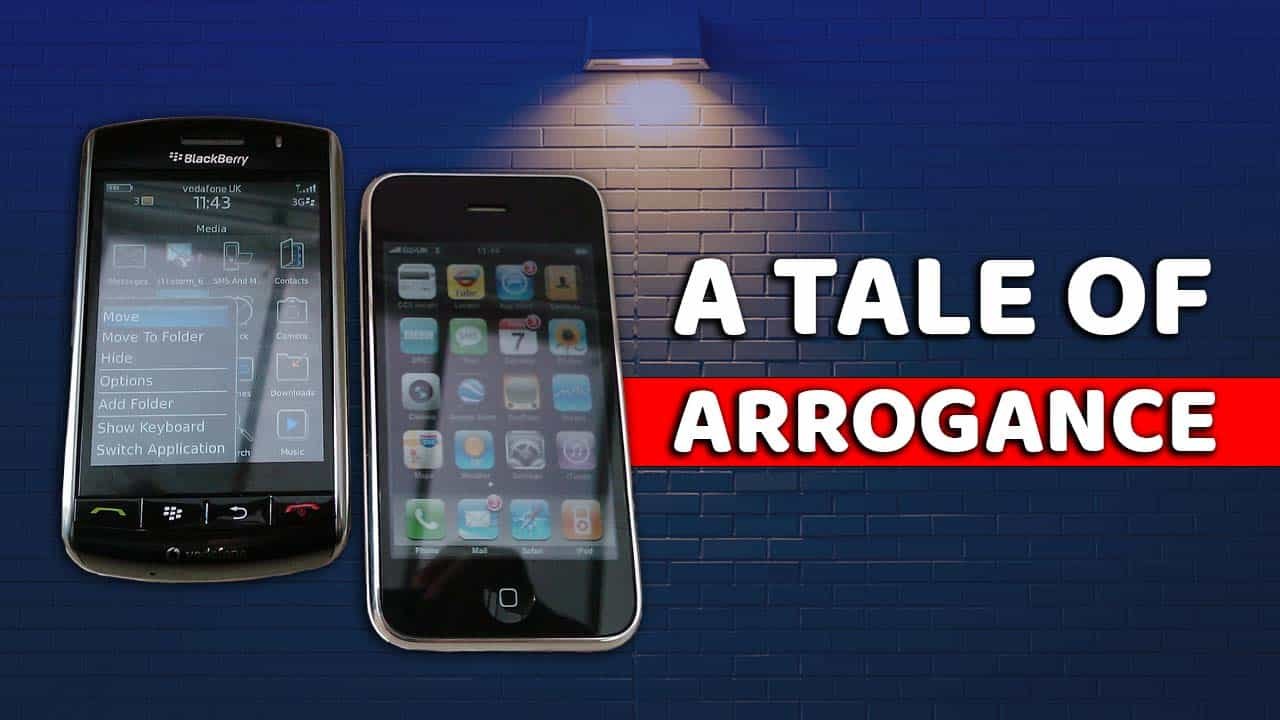In 2007, Apple introduced the iPhone, a revolutionary new smartphone that would change the way people use their phones forever. BlackBerry, the dominant smartphone maker at the time, was quick to dismiss the iPhone, saying that it was “not a threat” and that “we’ll be fine.”
But BlackBerry was wrong. The iPhone was a huge success, and it quickly took over the market. BlackBerry, on the other hand, began to lose market share. By 2013, BlackBerry was no longer the top smartphone maker.
How BlackBerry lost the smartphone war?
There were a number of reasons why BlackBerry failed to see the threat posed by the iPhone. Here are some of the most important factors:
- BlackBerry was too focused on its existing customers: The company’s bread and butter was business users, who were slow to adopt new technologies. The iPhone, on the other hand, was designed for a wider audience, including consumers.
- Slow to innovate: The iPhone was packed with new features, like a touch screen and a web browser, that BlackBerry didn’t have. BlackBerry was also slow to adopt new operating systems, such as Android.
- BlackBerry was arrogant: The company executives believed that they were the best in the business and that they didn’t need to change. This attitude blinded them to the threat posed by the iPhone.
How iPhones have captured the market now
The iPhone has been the best-selling smartphone in the world for many years. In 2022, it accounted for 22 per cent of the global smartphone market. This is followed by Android with 69. per cent market share.
There are a number of reasons why iPhones have captured the market:
- They are known for their high quality and sleek design. iPhones are made from high-quality materials and have a sleek, modern design. This makes them appealing to consumers who want a stylish and durable smartphone.
- iPhones have a user-friendly interface and are easy to use. The iPhone’s operating system, iOS, is known for its intuitive interface and easy-to-use features. This makes it a good choice for people who are not familiar with smartphones.
- Offer a wide range of features and apps. The App Store has a wide variety of apps to choose from, including games, productivity apps, and social media apps. This makes the iPhone a versatile device that can be used for a variety of purposes.
- Backed by a strong brand name and reputation. Apple is a well-known and respected company, and its products are known for their quality. This gives consumers confidence in the iPhone.
Facts about iPhone sales
- In 2022, Apple sold over 240 million iPhones.
- The iPhone 13 was the best-selling iPhone model in 2022.
- Apple iPhone generates more revenue for the tech giant than any other product.
- The iPhone is a major driver of Apple’s stock price.
Additional thoughts on the matter
BlackBerry’s physical keyboard was a major advantage in the early days of smartphones, when touch screens were still relatively new and difficult to use. However, the iPhone’s touch screen was a more intuitive and user-friendly interface, and it eventually won over consumers.
The company’s business model was also a factor in its downfall. BlackBerry made most of its money from selling its devices to businesses, which were slow to adopt new technologies. Apple, on the other hand, made most of its money from selling apps and services in its App Store, which was a more open and flexible platform.
BlackBerry also made some bad strategic decisions. For example, the company decided to focus on its own proprietary operating system, BlackBerry OS, instead of adopting a more open platform like Android. This decision made it difficult for BlackBerry to attract developers and apps, which further hurt its competitive position.
The story of BlackBerry vs. iPhone is a cautionary tale about the dangers of complacency. When a new technology comes along, it’s important to be open to change and to be willing to adapt. Otherwise, you could end up like BlackBerry.
BlackBerry’s main focus currently is on software and services. Sadly, the company has discontinued its own smartphone line and now focuses on providing security software and services to businesses and governments.







